'Always be yourself, no matter what'
CMU students reflect on Hispanic Heritage Month and what it means to be seen
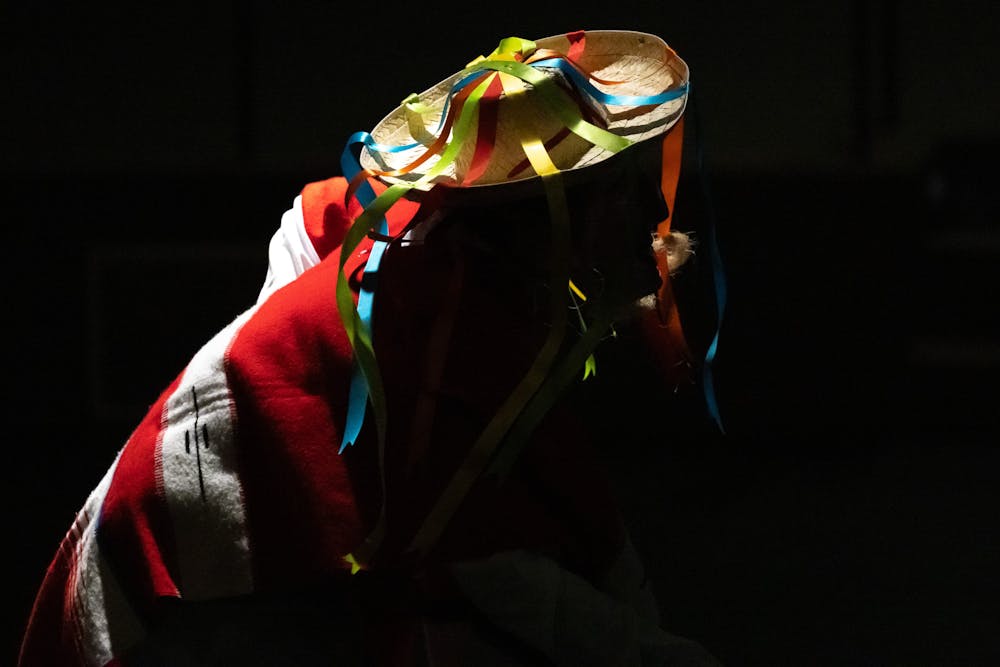
A dancer from Ballet Folklórico de la Luz performs Danza de los Viejitos, “Dance of the Old Men,” at Moore Hall, Townsend Kiva, Saturday, April 19, 2025. (CM-Life | Mark Hoover)
Editor's note: This story was updated on Oct. 2 to clarify that Nico Araujo-Pedroza has been practicing ballet folklórico for seven years and joined Ballet Folklórico de la Luz at CMU three years ago. It was also updated to reflect that the Empowered Latino Union and the Society of Hispanic Professional Engineers helped organize the carne asada event.
For Isabella Caraballo, a Central Michigan University student, Hispanic heritage is in her voice, her values and in the flags decorating her dorm room. The month is a reminder to stay grounded in identity, even when the world feels uncertain, she said.
“Growing up, my abuela took care of me … and I took care of her when she got older,” she said. “So … being Hispanic, that culture is very family-oriented, and I try to put that into my own values.”
But Caraballo isn’t the only one.
Hispanic Heritage Month is more than a calendar of events for students at Central Michigan University; it’s a deeply personal time to reflect, reclaim and reintroduce themselves on their own terms.
For many Latinx and Hispanic-identifying students, this month is an opportunity to reconnect with their roots, affirm their identities and create visibility for a community that continues to face cultural erasure and political tension. With a shifting national climate, including renewed debates over immigration and fear around racial profiling, students say the act of celebration itself can feel both empowering and defiant.
In a series of interviews, CMU students shared why Hispanic Heritage Month matters to them, how their identities have shaped their experiences, and why showing up, whether through dance, language, activism or art, is more than symbolic.
Caraballo: Pride in every flag and footstep
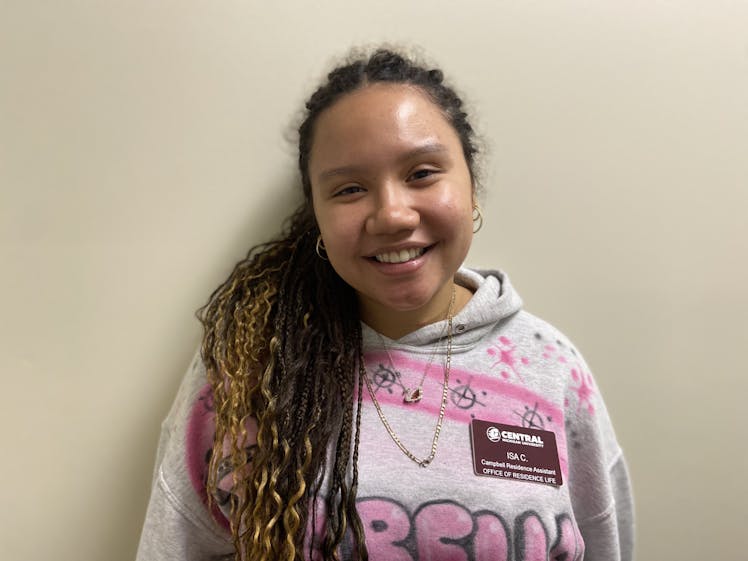
Caraballo is Afro-Latina and half Asian. Her parents are immigrants, and she said her childhood was shaped by family expectations, caretaking and translating paperwork at a young age.
“Why Hispanic Heritage Month means a lot to me is because … I always took pride in my culture,” she said. “And I like having a month … where I can ... represent myself and ... being proud of my heritage just means a lot, especially with ... everything going on right now.”
She said events like the carne asada made her feel like she was “back home” in Texas, surrounded by Spanish music, dancing and good food.
To her, that’s the point: “Know your values, know who you are, know where you come from.”
José Medina: Reclaiming culture through community
José Medina, a graduate student at Central Michigan University, said Hispanic Heritage Month is about embracing the identity he once felt disconnected from.
“Growing up, I was the only kid from my family that didn’t know Spanish, so sometimes I always felt left out of the Latino community,” he said. “But as I continued to explore my culture, especially at Central Michigan University, it opened a lot of perspectives for me.”
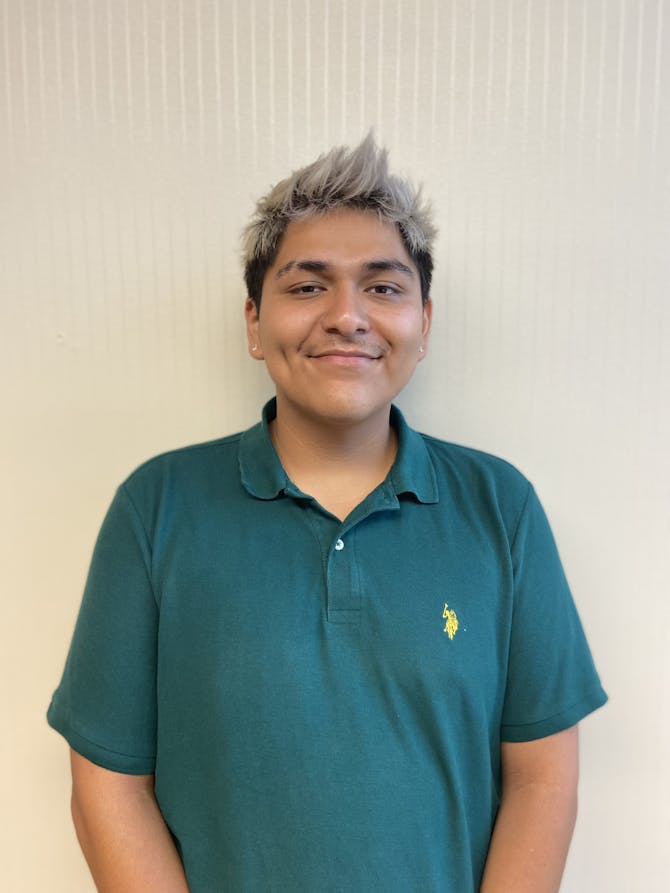
Now proudly identifying as a Mexican-American student, Medina sees the month as a time to celebrate who he is and help others do the same. He’s especially excited by how this year’s programming expands beyond traditional celebrations.
“There’s a lot of students willing to do Hispanic Heritage Month events and just be able to open it up to different perspectives,” he said. Medina, who is bisexual, pointed to student-led discussions on disability and LGBTQ+ media within the Latino community.
He also helped coordinate the welcome-back cookout, which included student organizations like Empowered Latino Union (ELU), the Society of Hispanic Professional Engineers (SHPE), Ballet Folklórico de la Luz, Prospanica and multicultural Greek life.
He said it’s important to be aware of and to celebrate the many layers of identity that shape a person.
“I also feel like the thing that represents me the most is my personality and how I represent myself to others,” he said.
Datherine Guzman: Strength, visibility and breaking stigmas
For Datherine Guzman, Hispanic Heritage Month is about more than celebration, it’s about visibility, education and strength.
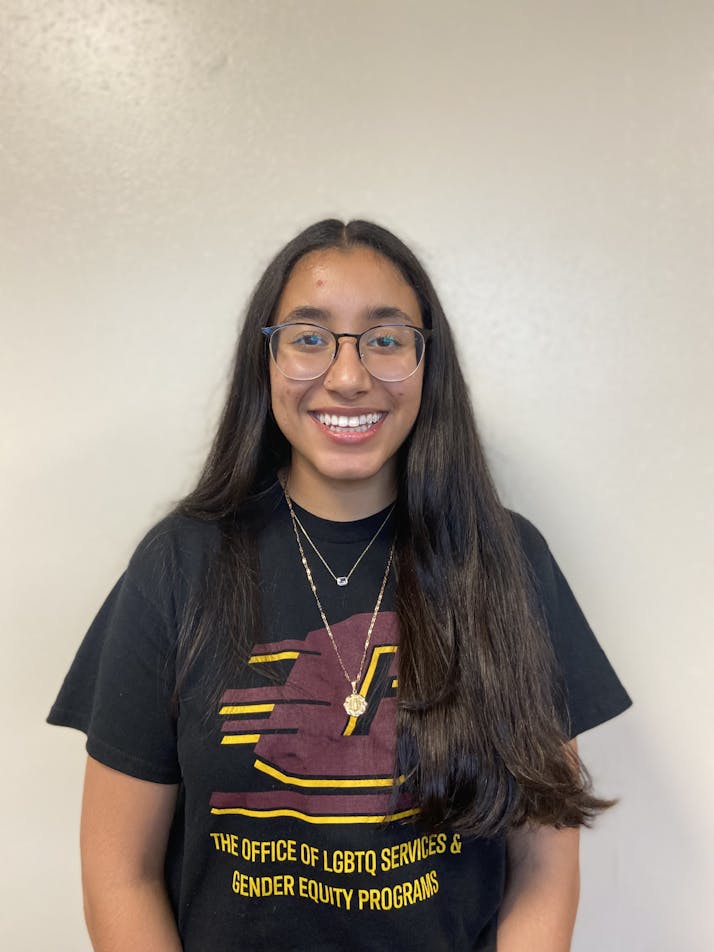
“People forget that there’s not just one culture in the Hispanic community,” she said. “It’s not just Mexican, there’s Dominican people, Colombians, Puertorriqueños. There’s a whole bunch of communities and cultures that people should know.”
Guzman identifies as both Mexican and Dominican, and proudly calls herself a strong, independent bilingual Latina. As a first-generation American, college student and leader on campus, she said she carries all those identities with pride, but also recognizes the challenges that come with them.
“Sometimes it’s scary to speak my native language without being looked at weird or getting racial comments,” she said. “I’m not scared of nothing, I’m proud of being bilingual. But not everyone feels safe.”
Guzman believes CMU should do more to support Latino students and others affected by immigration policies, including ICE.
“Instead of hiding from it, there should be more open spaces, like meetings or check-ins on mental well-being,” she said.
As a member of Sigma Lambda Gamma Sorority, Inc., she helps lead events like “El Corazón” and “Breaking the Stigma: Mental Health Is Real.” She says mental health is often overlooked in communities of color, and breaking the silence is crucial.
“If people have questions, I give them knowledge and resources,” she said. “I’m not trying to be their mom, just letting them know, ‘Hey, that’s a microaggression.’”
Her message to others: “Always be yourself, no matter what. Never make yourself smaller for anyone.”
Abelina Sanchez: Learning pride, one celebration at a time
Growing up in a predominantly white town, sophomore psychology major Abelina Sanchez said she didn’t always feel connected to her Mexican identity. But Hispanic Heritage Month, especially at CMU, has helped her reclaim it.
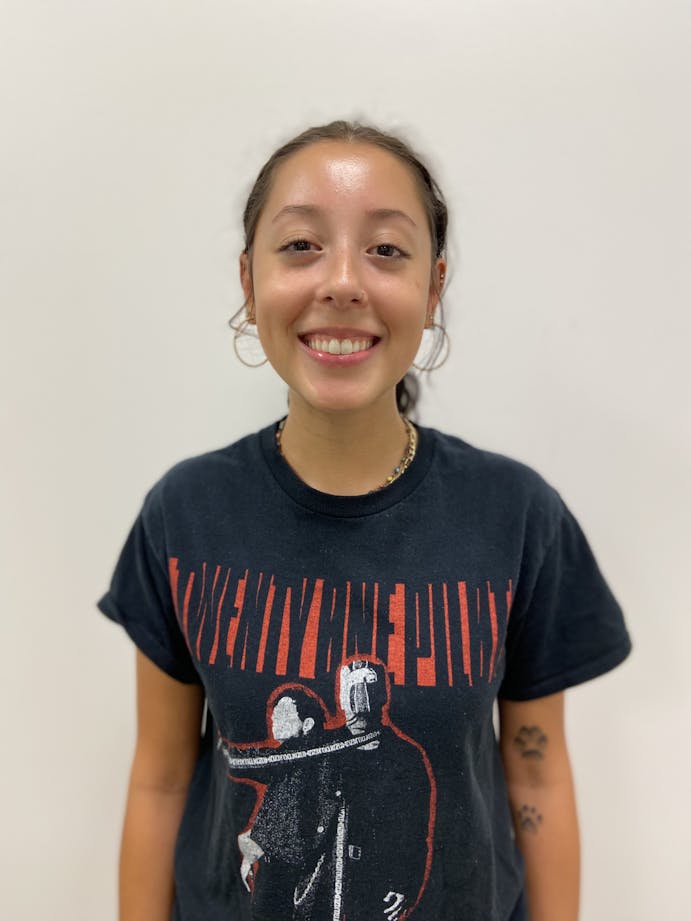
“Hispanic Heritage Month is personally meaning to me because I am Hispanic ... and it especially has been given meaning to me once I’m in college,” she said. “I grew up in a predominantly white town where there weren’t a lot of Mexicans or Hispanic people, but now that I’m here, there’s a lot more, and I can connect with my culture more.”
She said recent campus events like “Brown is in the Rainbow Too,” focused on queer Latinx identity, and casual gatherings like a carne asada helped her feel welcomed.
“I think the university is doing a great job doing that right now,” she said.
To Sanchez, being Hispanic means being proud, even when it feels risky.
“I definitely feel that Hispanic Heritage Month has taken a new effect ever since the new president has come in,” she said. “I feel more scared. A lot of Hispanics are afraid to come to work, are afraid to go to events, festivals, because they’re afraid of ICE.”
Still, she celebrates.
“It’s important to be who we are, because we exist. You can’t get rid of us,” Sanchez said.
Nico Araujo-Pedroza: Dancing between worlds, defending what’s home
Nico Araujo-Pedroza said Hispanic Heritage Month is a time to connect with a side of himself he didn’t always know how to claim.
“My mom is white, and my dad is from Mexico,” he said. “And when I was growing up, I didn’t really have too much connection with that other side of myself.”
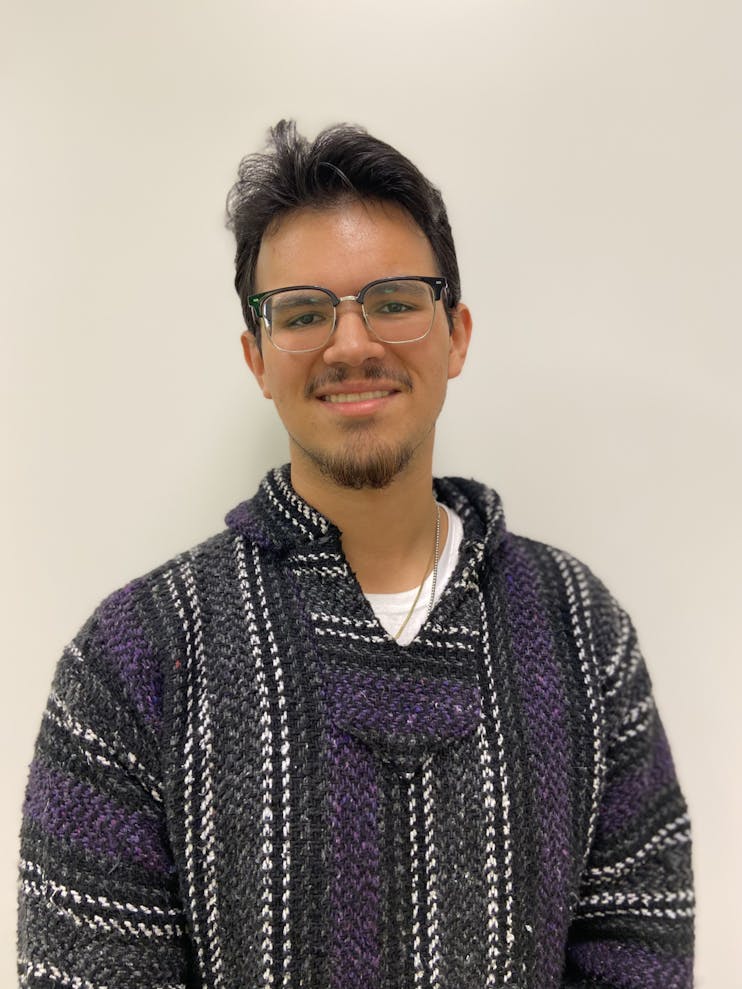
That changed when he began dancing ballet folklórico, a traditional Mexican folk style he’s been practicing for seven years. He joined Ballet Folklórico de la Luz after arriving at CMU nearly three years ago, and said the group helped him find both community and a stronger sense of cultural identity.
“For me as a mixed person ... I get to explore that other side of me that when I was a child, I never really had exposure to,” he said.
He now identifies as Chicano, a term he says reflects his Mexican heritage, American upbringing and deep pride in both.
The Chicano identity also fuels his activism. After the Supreme Court upheld a policy allowing ICE agents to detain people based on appearance alone, Araujo-Pedroza said the fear hit close to home.
“That’s racial profiling,” he said. “Regardless of if they’re a citizen or not, they still have the potential of being detained. That makes me think about my own family … my dad is from Mexico.”
Despite the fear, he refuses to be silent.
“I just want to represent my culture as much as I can … and support those people who face those trials,” he said.
For Araujo-Pedroza, Folklórico is where pride and heritage meet.
“We get to come together and celebrate our traditions and show there’s power in being proud,” he said.
Erick Guillén: A musical tribute to the values that raised him
For second-year music education major Erick Guillén, Hispanic Heritage Month is about honoring the values and community that shaped him.
“Hispanic Heritage Month is really important to me, because growing up, I just had the Hispanic values and community just foster me so much and teach me a lot,” he said. “I find a lot of my own personal philosophies grounded in Hispanic values.”
Guillén, who plays saxophone and studies on the instrumental path, said his identity is made up of many layers, but being Hispanic and being a musician are central.
“Often I imagine ... if I’m doing a presentation or performance… even if no one from my family is there, I always picture my family or other Hispanic friends that I had growing up,” he said. “They’ve helped me grow so much.”
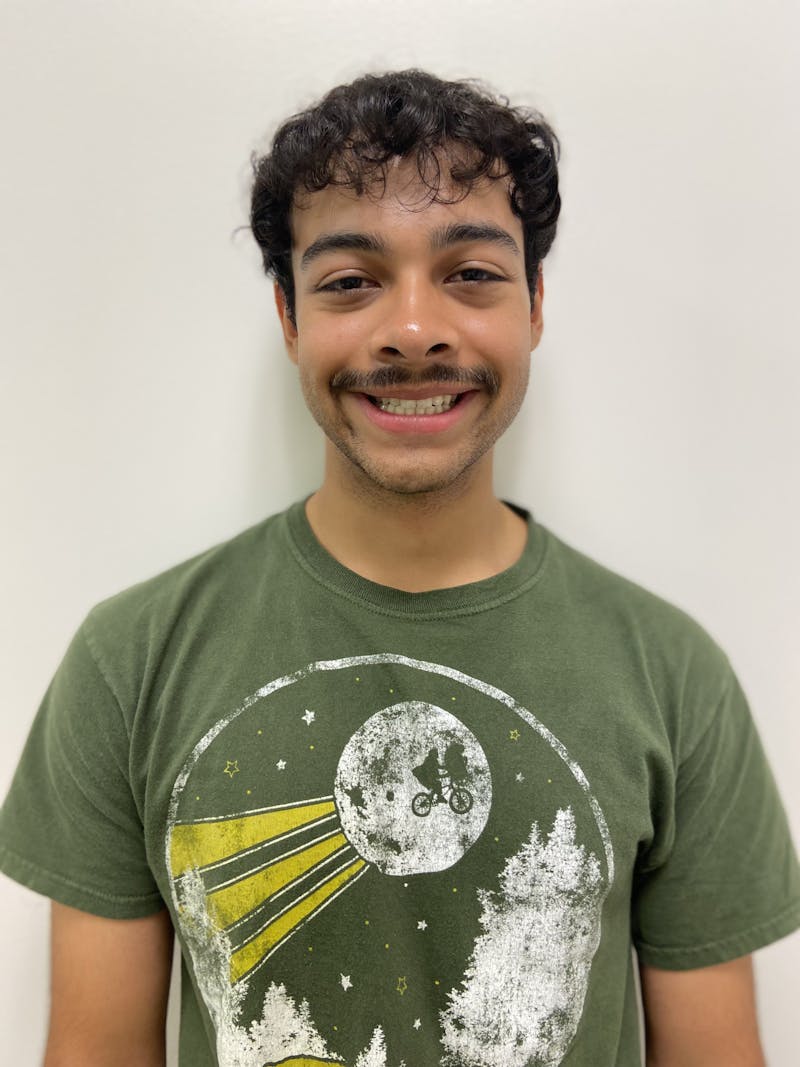
He appreciates the events happening across CMU’s campus but hopes to see broader representation across Latin America.
“I’m glad that we [Mexicans] get a lot of representation, but I also wish that it was more balanced out with other kinds of Latinos,” he said. “They’re just as Hispanic as Mexicans are, but they don’t get as much recognition or celebration.”
To Guillén, Hispanic identity is rooted in intergenerational respect and care.
“There’s a lot of value on respect… I think that’s a big part of Hispanic culture,” he said.
He hopes others engage with the month sincerely, with celebration, not appropriation.
“It’s so important to show allyship and camaraderie,” he said. “Even in a perfect world… there are differences that should be celebrated and shared.”



